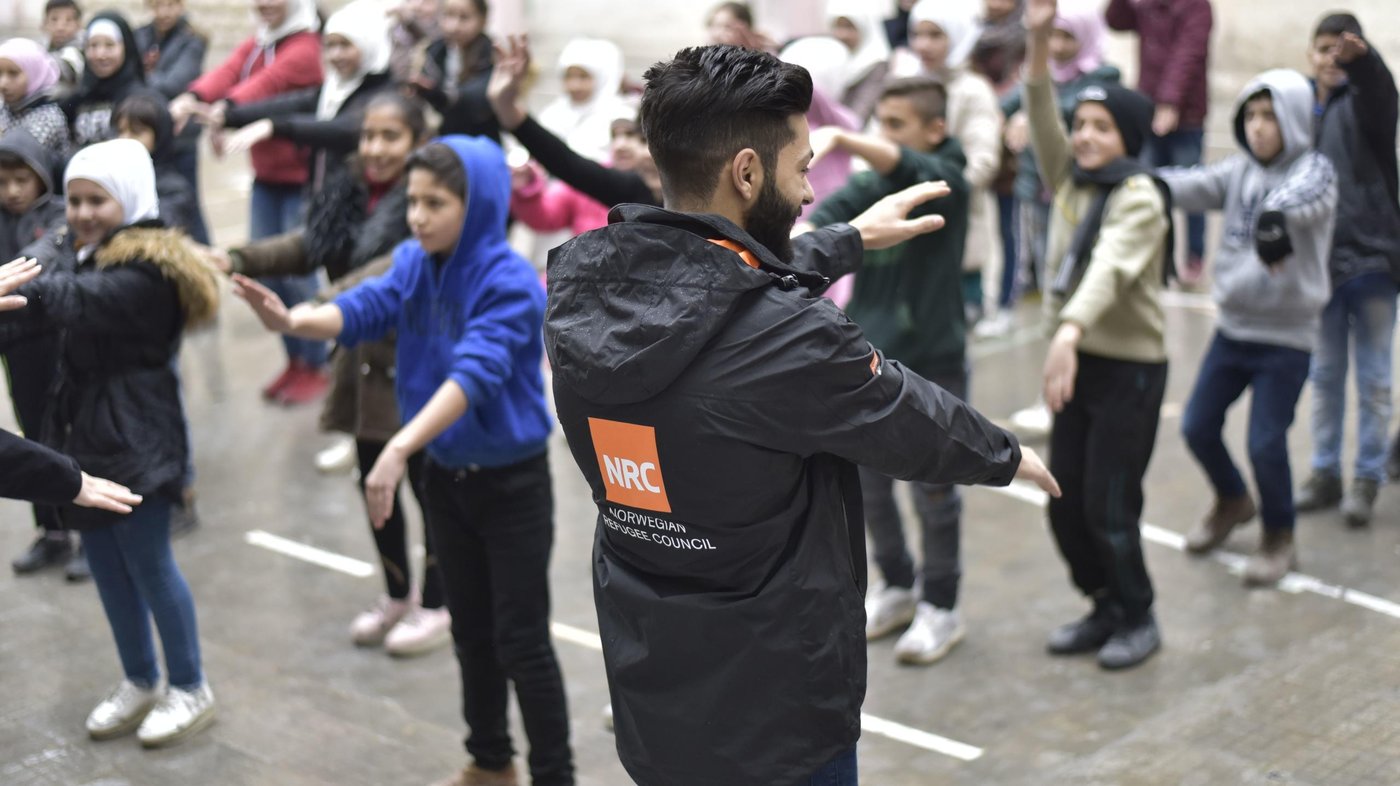NRC is one of the few humanitarian organisations working across the whole of Syria. We have delivered tents and essential household items in emergencies, repaired schools and homes, and provided learning opportunities to out-of-school children and young people.
As the conflict has evolved, we have adapted our response to continue meeting the needs of displaced Syrians and the communities that host them. In this time, we have witnessed the strength and courage of the Syrian people first-hand as families support one another and try to reclaim some hope for the future.
Here are some of their stories.

JORDAN: A mobile lifeline for Malak, 14
When the coronavirus pandemic struck and their school closed, the family’s only mobile phone became a lifeline for Malak, 14, and her seven siblings.
Only 12 days after the first case of Covid-19 was detected in Jordan, the authorities closed all schools in the country. Shortly afterwards, Zaatari refugee camp was also locked down.
More than 76,000 Syrian refugees were literally locked in, with no possibility of leaving the camp. At the same time, a large number of teachers and humanitarian aid workers were unable to enter the camp to work.
“Many families are deeply concerned about their children. We are doing our best to keep in touch with the children and their parents, but it’s hard when families lack both stable internet access and mobile phones,” said Noor Elkhairy, educational adviser with NRC.
Since the outbreak of Covid-19, NRC has been working around the clock to ensure that refugee children and youth can exercise their right to quality education.

LEBANON: How Fatima transformed her tent into a family home
Using materials supplied by NRC, Fatima Toumas and her family have now been able to double the size of their home. NRC has also provided toilets in Fatima’s settlement, as well as water for drinking and washing, hygiene kits, and waterproofing materials in preparation for the winter storms.
“I want to change things so that if I look around, I don’t think ‘this wall is very depressing’. This plant pot, for example: it’s very simple, but when I look at it, I feel happier,” says Fatima.
If anyone can make a shelter into a home, it’s Fatima. Despite missing her original home in Syria deeply, she does everything she can to bring colour and warmth into the tent her family shares.

LEBANON: The road to healing for Beirut's children
On 4 August 2020, a huge explosion devastated Lebanon’s capital, Beirut. With broken glass and debris covering the streets and thousands of homes destroyed, the blast terrified many residents. None more so than the city’s children.
Yousef Sarhan is a 10-year-old Syrian refugee living in Beirut. He and his family were at home when the explosion happened.
“My mother was sitting outside. My father was sleeping,” recalls Yousef. “Me and my brother were on the bed when we heard the explosion. We ran outside and lay down on the ground. I was terrified.”
For children like Yousef, who live close to where to explosion took place, the impact was very real. Some children have had nightmares and been unable to sleep. Some feel stressed and scared that another explosion might take place.
Yousef is one of hundreds of children who are taking part in the Norwegian Refugee Council’s psychosocial support classes. The classes were set up as a response to the explosion and are designed to help children deal with trauma and stressful situations.

SYRIA: What it means to go to school
As children around the world began a new academic year, Reem, 15, and Yasmine, 14, returned to school after years of missing out. When we met them, they reflected on what it meant to them to be able to rejoin their friends at long last.
“I used to feel very jealous, seeing my friends go to school when I couldn’t. There was no school for me to go to. Back then it was my dream to be one of them, on my way to school,” says Reem.
Reem and her family were forced to flee their home in Deir ez-Zur. As a result, she has been out of school for five years. NRC works with children like Reem, who have missed out on learning due to war and displacement, to get them back on track with their education.
Our education programme helps out-of-school children aged between six and 14 develop the knowledge, skills and attitude they need to reconnect with formal education and continue their learning journey.

LEBANON: Hassan’s daughters can finally cross the border
“I always worried because I knew that if I ever decided to go back to Syria I wouldn’t be able to take them with me,” says Hassan of his four daughters.
He is one of thousands of Syrians whose children were born in Lebanon but who was not able to register the births.
These children may have problems accessing services such as education, healthcare, legal support or humanitarian assistance if they return to Syria in future.
Children without complete birth certificates can also be prevented from travelling. If families do return to Syria, it can be challenging for them to update their records, because their documents need to be finalised in Lebanon first.
NRC provides free information, counselling and legal assistance services to approximately 200,000 Syrian refugees in Lebanon each year. We support them primarily in dealing with civil documentation (birth, marriage, divorce and death registration), legal residency, employment rights, and housing, land and property (HLP) rights.


